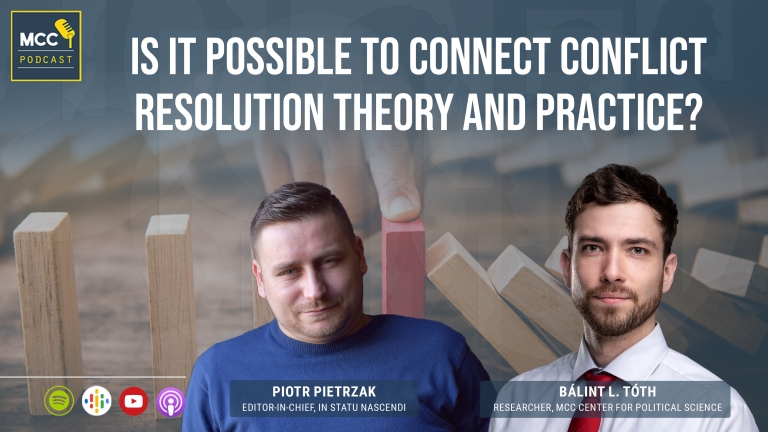Since 1872 schools in Scotland have been obliged to deliver Religious Observance (RO). This is what in England and Wales is called collective worship i.e. assemblies of the whole school devoted to a Christian liturgical act. New government guidelines issued in 1991 maintained the original 1872 requirement that schools provide regular assemblies of ‘broadly Christian character.’ However, in 2001 school inspectors reported that these guidelines were being ignored by the majority of secondary non-denominational (non-Catholic) schools, and so the new devolved Scottish government established a review of RO and issued new guidelines in 2005. The most significant change in the new guidelines is the traditional link between RO and Christianity is no longer required. Schools now have the freedom to replace Christian worship by a commitment to children’s spiritual development. As justification for this innovation, the foreword to the 2004 report by the RO Review Group stated: ‘We have tried to make the report inclusive, reflecting Scottish society as it is today.’
In 2008 I was a research fellow at Glasgow University’s School of Education and part of a UK- wide research project that asked the question Does Religious Education Work? In the same year I conducted fieldwork with colleagues into how the new RO guidelines were being received and implemented in a small sample of schools. Pupils pulled no punches when voicing their views. RO and Religious Education generally were boring in the sense of being intellectually vacuous and neither interesting, challenging or rewarding. Pupils described RO and Religious Education as suffering from a contentless vagueness. When asked what being a spiritual person meant to them, for example, pupils replied they had no idea and had no models or exemplars to offer us, even if only to break an awkward silence.
Lack of intellectual rigor was also highlighted in Glasgow University’s concluding report on religious education across the UK (see Conroy et al. 2013). Disenchantment with Religious Education and classroom discussions was widespread and traced to the ‘dictatorship of relativism’ whereby, in any school context where there is no commitment to a set of shared metaphysical commitments (so that every opinion is valid and to be equally respected) truth was never the pedagogical ‘good’ to be accomplished.
Another significant finding of our RO fieldwork was that teachers did not talk to their pupils of their own moral or spiritual development as a quest for spiritual truth. This inability or reluctance of teachers to give their personal account or testimony of the good or virtue that pupils were to strive for or imitate (and the practices to arrive at spiritual ‘excellence’) can be described as a performative failure that was fatal for the subject’s credibility: akin to a French teacher not speaking French or a swimming instructor not knowing how to swim. Another finding was that decoupling spiritual development from Christianity meant teachers no longer knew what spiritual development is or might be. Once the de facto focus on Christianity was lost or became optional, teachers told us they felt totally lost because knowledge of non-Christian religions formed no part of their history, cultural tradition or professional training.
The RO Review Group rightly saw that the de-Christianising context of schools where the number of Christians is insufficient to determine the school’s ethos demanded a policy-level response. The only question was what that response should be. By opting for a purely secular and naturalistic vision of spiritual development, however, the new guidelines seem to envision schools as miniature replicas of Scottish society where pluralism prevails, and promotes a view of spiritual development that is ‘without ancestors’ and ‘without history.’ Such a non-Christian project is unlikely to have any place for human sinfulness, and is likely to adopt the prevailing therapeutic, individualist and Pelagian view of Man and his perfectibility. This option, then, is more or less the very antithesis of the communitarian position developed by Alasdair MacIntyre (1988) for whom the Scottish tradition is a Catholic / Protestant Aristotelianism, rather than the novelty of Enlightenment scepticism that has no place in the Scottish tradition. As is well known, to escape the endless agonistic stalemate characteristic of Western liberal polities, MacIntyre recommends each must choose the Tradition deemed best to accord with human excellence and that Tradition for MacIntyre is the Aristotelian-Thomistic one.
Viewed from MacIntyre’s perspective, the new RO guidelines have regressed to the Enlightenment illusion that a purely secular or rational humanist vision of spiritual development is possible without firstly securing shared metaphysical commitments, and it is deeply ironic that a country that six years after returning to its own traditions and institutions, has seen that parliament repeat the Enlightenment mistake of recommending a tradition-free individualism. If MacIntyre is right to claim it is only by participation in a Tradition or Community that the individual becomes rational; that ‘one cannot think for oneself if one thinks entirely by oneself, that it is only by participation in rational practice-based community that one becomes rational’ (MacIntyre 1988, p. 396), then the 2005 guidelines are set to produce generations of young Scots that will increasingly be Traditionless and post-national and fated to reproduce at a personal level the never-ending ‘agonistics’ characteristic of Western liberal polities thanks to being educated by a policy that is ‘without ancestors.’
Interestingly, when conducting a pilot study into the education of nursing students, I found the same ‘performative failure’ thanks to the absence of agreement upon metaphysical and anthropological commitments; a university Nursing Programme reproducing the same model of the un-situated abstract human being whose nationality, religion and culture are accidental to the person, and therefore accidental to the education of the nurse as such ‘external’ realities can be safely ignored as the real subject to be educated is the post-historical and post-national universal person imagined to exist beneath the external and accidental accretions of culture, religion and belief.
This means nursing students and nursing educators with religious beliefs are merely tolerated, and never valued and celebrated or imitated or learned from, and so it is likely these nursing programmes will produce graduates who are educated to understand religion, for example, as entirely accidental to their human flourishing and excellence as nurses. Similar to teachers vis-à-vis Religious Observance who were unable to ‘perform’ their spiritual lives with their pupils, educators of nurses who had religious beliefs never referred to them in their educational practice. The irony, then, is nursing programmes that advertise themselves as ‘person centred’ but what is actually taught is the practice of removing all traces of their religious selves from professional practice, so that just as with the 2005 RO guidelines, we have the elision of the personal in Scottish education; person-centred nursing programmes built upon the 18th century post-national and post-historical universal subject ‘from nowhere’ invented by Enlightenment thinkers and subsequently rejected by many 20th century thinkers.
If the RO Review Group sough to align education with ‘Scottish society as it is today,’ this work of alignment did not include aligning education with the resurrection of the Scots parliament in 1999 which was a clear re-assertion of nationality and historical particularity. Furthermore, these recent developments in education contradict George Davie’s (1912-2007) view that the distinctive 20th century Scottish contribution to educational theory in Scotland was ‘an anti-modernist, anti-Enlightenment position’ (Beveridge and Turnbull 1997, p. 116) developed by the likes of Norman Kemp-Smith (1872-1858) and John Anderson (1893-1962); with the latter being ‘a belligerent arch-foe of [the] bien pensant progressivism’ (Beveridge and Turnbull 1997, p. 118) being promoted by educational activists such as A. S. Neill (1883-1973).
Furthermore, insofar as a signature development of 20th century Scottish thinkers has been personalism; ‘a movement represented by, among others, [John] Macmurray, [John] MacQuarrie and R. D. Laing’ (Beveridge and Turnbull 1997, p. 120) and more recently by David Braine (1940-2017) and Alasdair MacIntyre and myself (Gilfillan 2014), the elision of personalism in recent educational reforms makes perfect sense as personalism requires metaphysical commitments that policymakers in secular liberal democracies refuse to make. For MacIntyre, if the practice of spiritual education is to be coherent it is necessarily personalist because ‘questions about what we ought to do can only be given proper sense within a wider framework of…questions about what we ought to be or become’ (Beveridge and Turnbull 1997, p. 120), and necessitates a return to pre-modern sources. Hence Macintyre ‘finds in thirteenth-century Thomist education a model for the reconstruction of the contemporary university’ (Turnbull and Beveridge 1997, p. 13).
In conclusion, then, insofar as the post-devolution era is built upon the rejection of the Enlightenment legacy and the return to the institutions developed in the pre-modern Catholic era,
As there is a clear clash of rival models of human authenticity being played out within educational theory and practice between Traditionalists and Liberals, perhaps only full political independence will allow Scottish education to once again rotate upon its own axis (see Orban 2021, pp. 127-34).
Reference List
C. Beveridge and R. Turnbull 1997 Scotland After Enlightenment. Edinburgh: Polygon.
J. C. Conroy (Ed.) 2013 Does Religious Education Work? London: Bloomsbury.
P. Gilfillan 2O14 A Sociological Phenomenology of Christian Redemption. Grosvenor House Publishing.
A. MacIntyre 1988. Whose justice? Which Rationality? University of Notre Dame Press.
B. Orban 2021 The Hungarian Way of Strategy. Budapest: MCC Press.









